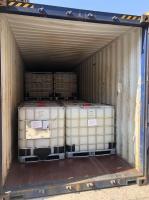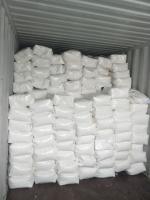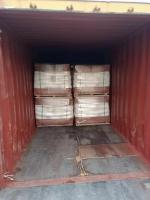Our Products
Polyacrylamide / the equivalent of FLOPAM EM230 nonionic polyacrylamide emulsion

Application of FLOPAM EM230 Nonionic Polyacrylamide Emulsion
FLOPAM EM230 is a liquid nonionic polyacrylamide emulsion designed for a wide spectrum of solid–liquid separation processes across industrial and municipal systems. As a nonionic polymer, FLOPAM EM230 contains no cationic or anionic functional groups, enabling it to perform effectively in chemical environments where ionic polymers fail or become unstable. Its advantages include high molecular weight, excellent water solubility, strong bridging flocculation, low sensitivity to pH, and reliable performance in high-salinity or multi-contaminant wastewater systems.
Because of these characteristics, FLOPAM EM230 is widely used in wastewater treatment, sludge management, mining, paper production, chemical processing, oilfield water treatment, construction slurry handling, and various industrial separation applications.
The following sections provide a comprehensive discussion—about 955 words—on the main applications of FLOPAM EM230.
1. Municipal and Industrial Wastewater Treatment
1.1 Clarification of Raw and Process Water
FLOPAM EM230 is frequently applied in clarifying:
-
municipal raw water
-
industrial process water
-
cooling tower blowdown water
-
recycling water streams
It works especially well when suspended solids are primarily neutral colloids, silica-based particles, organic debris, or fine mineral particulate that do not respond effectively to charged flocculants. Its nonionic character produces stable flocs even when the water contains:
-
high concentrations of dissolved salts
-
heavy metals (Fe, Mn, Al, Zn)
-
surfactants or oils
-
extreme pH
This makes the product suitable for industries with chemically complex effluents.
1.2 Primary and Secondary Clarifiers
In wastewater treatment plants, FLOPAM EM230 enhances:
-
suspended solids removal in primary clarifiers
-
settling of biological solids in secondary clarifiers
-
turbidity reduction
-
sludge compaction
Because nonionic polymers do not interfere with microbial activity, they are ideal for biological treatment processes such as activated sludge, MBRs, trickling filters, and nitrification systems.
1.3 Dissolved Air Flotation (DAF)
FLOPAM EM230 significantly improves the performance of DAF units by:
-
increasing bubble–particle attachment efficiency
-
forming buoyant flocs
-
enhancing removal of fats, oils, and greases
-
reducing carryover of fine flocs to effluent
This is vital in industries like meat processing, seafood, dairy, petrochemical, and metalworking operations.
2. Sludge Thickening and Dewatering
2.1 Mechanical Dewatering
FLOPAM EM230 is widely used in:
-
belt filter presses
-
centrifuges
-
screw presses
-
chamber and plate filter presses
-
rotary drum thickeners
It improves dewatering by:
-
building strong, shear-resistant flocs
-
increasing water release from sludge
-
boosting cake dryness
-
reducing polymer usage compared to charged polymers in certain sludge types
Nonionic polyacrylamide is particularly effective for:
-
oily sludge
-
mixed chemical sludge
-
biological sludge with unstable solids concentration
-
refinery wastewater sludge
2.2 Gravity Thickening
In gravity thickeners, FLOPAM EM230 helps:
-
accelerate sludge settling
-
increase solids concentration prior to digestion or disposal
-
stabilize thickening under load variation
Its low charge prevents chemical interactions that might destabilize sludge flocs during long retention periods.
3. Mining, Mineral Processing, and Tailings Management
3.1 Tailings Thickening and Clarification
Mining tailings often contain very fine particles of:
-
silica
-
alumina
-
clay minerals
-
coal fines
-
metallic oxides
These particles are difficult to settle using ionic polymers. FLOPAM EM230 is applied to:
-
thicken tailings slurry
-
improve overflow clarity
-
reduce turbidity in recycled water
-
promote consolidation of ultra-fines
It remains effective in high-salinity, acidic, or alkaline conditions commonly found in mining operations.
3.2 Beneficiation and Flotation Circuits
Nonionic polyacrylamide can act as:
-
a flocculant
-
a depressant
-
a sedimentation aid
Its neutrality ensures it does not interfere with flotation reagents, making it valuable in processing coal, kaolin, phosphate, gold, iron ore, and rare earth elements.
4. Oil & Gas, Refining, and Petrochemical Applications
4.1 Produced Water Treatment
Produced water typically contains:
-
oil droplets
-
suspended solids
-
dissolved salts
-
metal contaminants
FLOPAM EM230 enhances:
-
oil–water separation
-
coagulation of dispersed oil
-
solids removal before reinjection or disposal
-
compatibility with high brine concentrations
Its resistance to salinity makes it suitable for offshore and onshore oilfield operations.
4.2 Petrochemical and Refinery Wastewater
Refinery wastewater includes emulsified oils, catalysts, chemical residues, and aromatic organics. FLOPAM EM230 assists in:
-
equalization tank settling
-
API separator polishing
-
desalter wastewater clarification
-
DAF performance improvement
5. Papermaking and Pulp Processing
Nonionic polyacrylamide is applied in the paper industry for:
-
retention and drainage improvement
-
fiber and filler retention (kaolin, calcium carbonate, TiO₂)
-
white water clarification
-
effluent treatment in paper mills
Because it does not interact strongly with alkaline papermaking chemicals, FLOPAM EM230 provides stable performance under variable process conditions.
6. Construction, Drilling, and Tunneling Applications
6.1 Slurry Stabilization and Recycling
In civil engineering activities such as diaphragm wall construction, tunneling, and HDD (horizontal directional drilling), FLOPAM EM230 helps:
-
maintain slurry viscosity
-
control loss of fluid
-
flocculate fine soils for slurry recycling
-
improve separation of excavated solids
Its stability under variable pH and ionic content makes it ideal for geological conditions that shift rapidly.
6.2 Soil Improvement and Erosion Control
FLOPAM EM230 is used for:
-
stabilizing loose soils
-
binding fine particles
-
reducing water runoff turbidity
-
dust suppression
It enhances soil structure without altering ionic composition.
7. Chemical Processing and Manufacturing
Nonionic polyacrylamide is also applied as:
-
a dispersant for inorganic powders
-
a stabilizer in emulsion polymerization
-
a thickening agent in chemical formulations
-
a binder for ceramic or catalyst materials
Its compatibility with acidic, neutral, and alkaline components makes it widely useful across chemical industries.
Conclusion
FLOPAM EM230 nonionic polyacrylamide emulsion is a highly adaptable flocculant and process aid used across diverse industries. Its neutrality, high molecular weight, and resistance to ionic interference allow it to deliver consistent performance under challenging chemical conditions where anionic or cationic polymers fail. Whether employed in wastewater treatment, sludge dewatering, mining tailings clarification, oilfield water separation, papermaking, construction slurry handling, or chemical processing, FLOPAM EM230 provides strong flocculation, stable process performance, and operational efficiency across all solid–liquid separation challenges.




